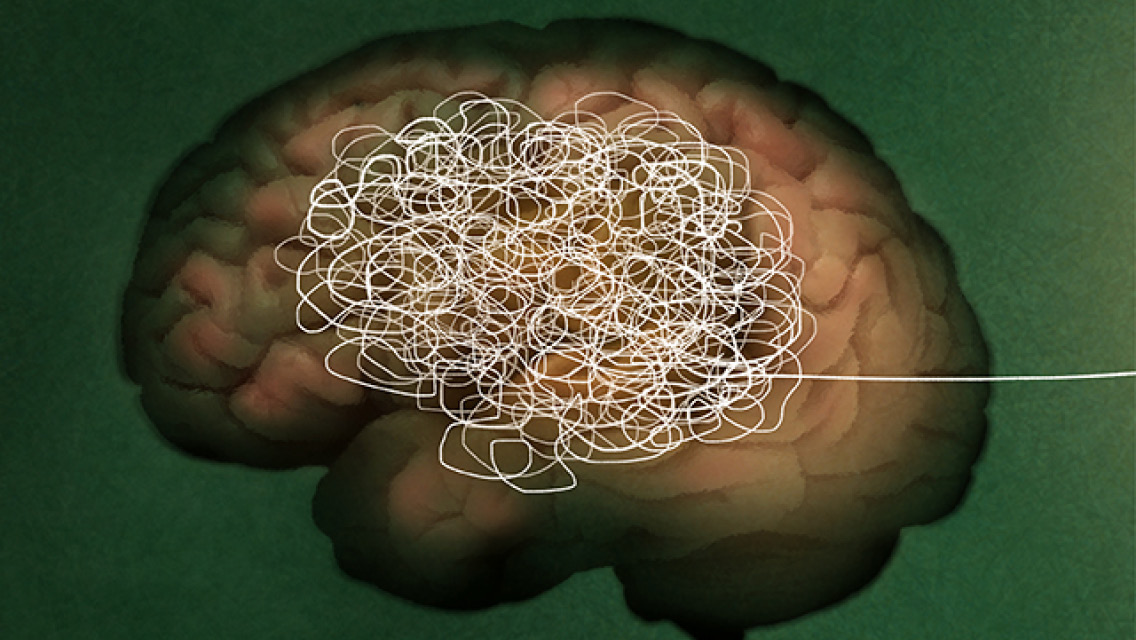My late father-in-law was a born salesman and an inveterate storyteller, regaling anyone within earshot with tales of his WWII exploits in the Pacific. He’d hold court at family gatherings, describing in detail some shipboard incident he’d described dozens of times before as we all waited for an opportunity to politely change the subject. When the stories dried up, we gradually began to realize his memory was failing him. His descent into Alzheimer’s in his 70s left us all scratching our heads; we were completely unprepared to deal with his transformation from a colorful raconteur to a forgetful patriarch to a gibberish-spewing toddler.
I recall sitting with him on our porch one summer afternoon, doing my best to interpret the collection of disjointed syllables that, to him, may have described some wartime fracas in a Manila bar. I could only manage a feeble smile in response.
We’ve come a long way in our understanding of dementia in the 17 years since that sailor left us. It remains a devastating disease and a nightmare for family members who are charged with caring for its victims, but amid the gloom there has arisen a nascent movement that aims to shift our perspective. Alzheimer’s doesn’t have to be a “tragedy narrative,” Bill Thomas and other visionary geriatricians contend. It can actually be a gift.
“The main framework America has available to contend with this is . . . that’s it’s a terrible, destructive ride all the way down and then you die,” Thomas tells Tara Bahrampour in the Washington Post. “While factually true, that is extremely unhelpful to families and elders.”
Much of the suffering Alzheimer’s patients experience comes from the responses of others after the diagnosis, notes Jennifer Carson, director of the Dementia Engagement, Education, and Research program at the University of Nevada at Reno. “Tell someone they have dementia and then ignore them: That’s the suffering, way more than the tragedies that are intrinsic to dementia itself.”
Bahrampour describes the work of several organizations designed to improve dementia sufferers’ cognitive symptoms and quality of life through “humor, empathy, and improvisation.” There’s Thomas’s ChangingAging group that explores the emotional side of the disease with its Disrupt Dementia program, for example, and a Seattle collective called Momentia that organizes outings and facilitates gibberish conversations between caregivers and those with Alzheimer’s.
The effects, Bahrampour reports, can be transformative. She cites a 2016 Canadian study that showed significant cognitive and life-quality improvement among dementia sufferers in a nursing home after a 12-week series of visits from “elder-clowns.”
Mary Fridley runs a workshop at New York City’s East Side Institute called The Joy of Dementia (You’ve Got to Be Kidding) that embraces a light-hearted approach to coping with what Fridley admits is an “enormously painful” disease. But she has found that it can also be an immensely freeing experience. “I truly believe it is an opportunity, if people so choose, to be improvisational, to be silly, to play, to free ourselves from the constraints of truth and knowing and assumptions,” she says.
The key for caregivers, explains Karen Stobbe, creator of In the Moment, a Maryland-based dementia-care training organization, is to simply meet Alzheimer’s victims where they are and follow their cues. In some ways, it’s similar to dealing with toddlers who can’t clearly articulate their wishes and have a different view of what constitutes acceptable behavior. “We have this tendency where we want that person to be back in our world,” Stobbe says. “We think it’s not normal so we want them to stop. If someone’s sitting at the table ripping up napkins and they’re getting joy out of it, why not let them do it? Just because it’s not our idea of normal?”
For those journeying through the terrifying wilderness that is Alzheimer’s, just knowing that someone hears them and connects with them can be a comfort. “Laugh or sing with them,” she says, “and they see it’s OK.”
I wonder now, all these years later, what that old sailor thought of my unwillingness to connect with him that afternoon on the porch. Maybe he was content to simply spin another yarn for a captive audience, but I can’t help but think he might have appreciated it if I’d asked him to elaborate a bit.




This Post Has 0 Comments